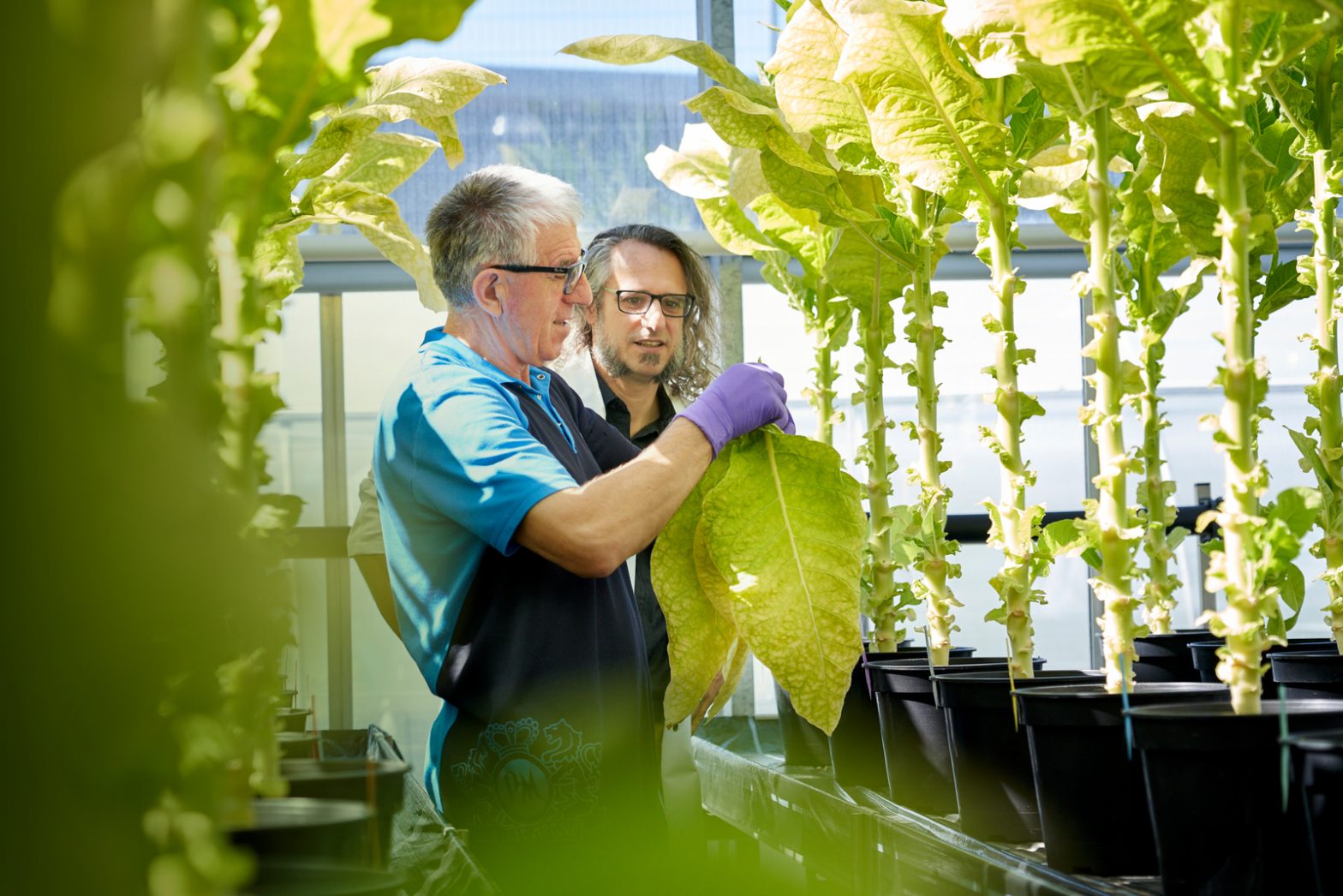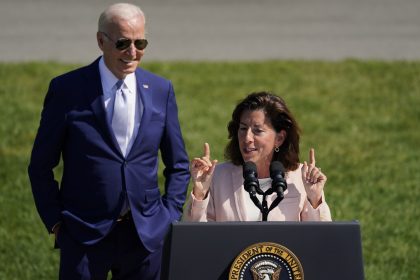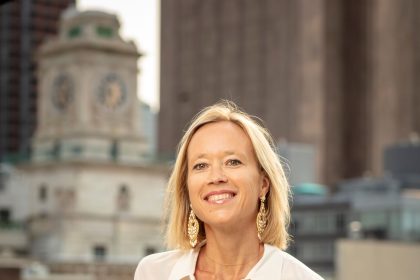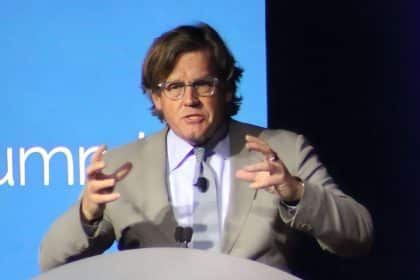At Philip Morris International Smoke-free Future Cornerstone of Sustainability
PARTNER CONTENT

WASHINGTON — It has been an eventful summer for Philip Morris International, the company perhaps best known for its Marlboro and Chesterfield cigarette brands.
First, Chief Executive Officer André Calantzopoulos declared in the company’s recently released integrated report that he is “convinced” it will be possible to completely end cigarette sales within 10 to 15 years in many countries as smokers switch to alternative products for nicotine.
Then, just last week, in what may well turn out to be an industry-transforming decision, the U.S. Food and Drug Administration gave Philip Morris International (PMI) long sought approval to market its IQOS tobacco heating device as a modified risk alternative to smoking.
E-cigarettes, an early attempt to move away from the dependence on traditional cigarettes for revenue, faltered under regulatory scrutiny. But in 2016, PMI declared itself intent on being at the vanguard of a new, “smoke-free” future, and after nearly two decades of scientific research, launched IQOS, a heat-not-burn product, as the most promising vehicle to get there out of their broader portfolio of smoke-free products.
Even before approval for marketing its new product as a better alternative than cigarettes, IQOS was an immediate hit and is now available for sale in 57 markets. As of June 2020, PMI estimates as many as 11.2 million adult smokers around the world have stopped smoking and switched to IQOS.
As a result, the company now gets nearly a quarter (24%) of its revenue from non-combustible products.
The basic premise behind the technology is using heat rather than burning to limit the amount of harmful particles smokers inhale. In a traditional cigarette, the burning tobacco reaches a temperature of about 1,112 degrees (Centigrade), releasing high levels of harmful chemicals.
IQOS, by comparison, heats a tobacco stick, mixed with other solvents, to only about 660 degrees (Centigrade) to produce an aerosol that lets smokers inhale a more pure form of nicotine with less of the chemicals known to contribute to lung disease.
“The FDA’s decision is a historic public health milestone,” Calantzopoulos said. Many of the tens of millions of American men and women who smoke today will quit – but many won’t.
“The FDA determined that scientific studies have shown that switching completely from conventional cigarettes to IQOS reduces exposure to harmful or potentially harmful chemicals,” he added.
Remaking Company Fosters Discussion Around Sustainability
But the recent developments surrounding the company have come with an unexpected bonus, the moves in the market place are allowing PMI to tout its successes in areas ranging from its commitment to sustainable practices within its manufacturing and sourcing to greatly reducing child labor abuses in the agricultural sector.
“I think we’ve always had an important story to tell about sustainability, but it’s difficult to communicate that story when your number one externality — cigarettes — have such an extreme impact on public health,” said Huub Savelkouls, PMI’s chief sustainability officer.
“We’ve done a lot of good things in the past to be more sustainable — for instance implementing programs to reduce greenhouse gas emission, or taking decisive steps to eliminate child labor on tobacco farms — but we simply didn’t talk about it,” Savelkouls said.
“The feeling, within the company, was that unless we first tackled the harmful impact of smoking on the health of the consumer, no one was going to listen to whatever else we had to say,” he added.
Savelkouls said he understands that cynicism when it comes to corporations, who are often accused of addressing the low-hanging fruit, but ignoring or doing less to address tougher problems.
“Being a tobacco company, you know people are going to be even more skeptical,” he said.
But as PMI moved forward with the introduction of IQOS, executives realized the moment was right to start communicating more about their sustainability practices.
“In 2015, 2016, a fundamental discussion took place within [Philip Morris International], and it really came down to asking ourselves, ‘Okay, what is the purpose of company?'” Savelkouls said.
“We realized we had a choice: we could continue to produce combustible cigarettes alongside our smoke-free products, or we could completely replace combustible cigarettes … and we went with the second proposition,” he said.
“Why? Because we decided if you have a product that you know is enjoyed by consumers as much as they like cigarettes, but you have a much better alternative, we think it’s our duty from a moral and commercial point of view to phase out the more harmful product as quickly as possible.”
“And we’re not alone in this thinking in the corporate world,” Savelkouls said. “Look at the move away from the use of chlorofluorocarbons in refrigeration and air conditioning, or the move from gas-powered to electric vehicles. In this way, I think what we’re doing is pretty normal.”
Acting on a Global Scale
Because Philip Morris International has a global footprint that includes 73,000 employees, 38 worldwide production facilities, and over 150 million customers in more than 180 markets around the world, its biggest environmental and social impacts are tied to its supply chain.
“When you consider our greenhouse gas emissions, what you find, I think, is that as much as 85% of them are produced in the upstream supply chain, and mainly during the process of curing the tobacco,” he said.
“So this is an area where we spend a lot of time talking to suppliers about how they can be more energy efficient and how to choose fuels for curing that emit fewer greenhouse gases,” he added.
Savelkouls said the same philosophy is applied to the company’s own manufacturing facilities.
“We basically go from factory to factory, looking at how we can make them more energy efficient. Then we look at the fuel source they use and how best to deploy things like solar panels,” he explained. “Of course, with 38 factories spread across countries with many different kinds of climate, no one solution fits all. But we do have a global budget for these kinds of initiatives and every factory is encouraged to propose its own plan.
“The other thing we’re very actively doing is buying green energy when we can, rather than energy generated by coal,” Savelkouls said. “Unfortunately, that’s not possible everywhere we operate, but we’ve tried to rectify that by teaming up with other multinational companies in those areas to increase the demand for green energy to be produced.”
Savelkouls said one thing PMI intends to do more going forward is to incorporate carbon pricing in its calculations as it continues to grow.
“Basically, it’s a matter of including the carbon price of a proposal in the framework with which you make an investment decision. Every choice you make affects your carbon footprint, how energy efficient you are, and what sources of energy you rely on,” he said.
Savelkouls also spoke at length about the social component to the company’s sustainability efforts.
“Labor conditions are very important to us,” he said. “Of course, within your premises, you have direct control, but it’s more difficult to monitor these situations at every point in a global supply chain.
“Child labor is a very big concern in our industry, and one way we try to combat it is by avoiding buying tobacco at auction,” he said. “Through direct contracts with tobacco farmers, we have much better control over greenhouse gas emissions in their operations and the ability to monitor for incidents of child labor,” he continued. “We currently have more than 2,800 field technicians who visit farms five times a year, not only looking at the product they’re producing, but also at who is working on the farm and what, if any, environmental issues may be arising.
“Working cooperatively with farms, you can make a real difference as a company,” he said.
Pandemic May Actually Accelerate Progress
Asked whether the coronavirus outbreak has hindered PMI’s sustainability efforts this year, Savelkouls expressed confidence that on a macro level, they hadn’t.
“Broadly speaking I think what the coronavirus has done is reminded us how small the world really is and how connected we are,” he said. “A problem that starts off happening ‘somewhere’ can suddenly be happening ‘everywhere.’ Climate change is another example of that.
“So, I think rather than slow efforts to act more sustainably, the coronavirus emphasizes the need for people to think more about nature and biodiversity, and also about issues like inequality,” he said. “In a way, it has provided more wind in the back of those promoting sustainability.”
Savelkouls said where the coronavirus has proved “a bit more complicated” is in the realm of specific, field-level initiatives.
“For instance, one of the initiatives we had was a beach cleanup campaign, which has been put on hold because of the pandemic, and there are a few other programs like that, but these activities will resume once the virus is gone.
“But going back to the big picture, I think the coronavirus will cause people to put even more emphasis on sustainability when it’s over. Consumers will want to know more about where products are coming from and where they are made, social aspects, like inequity, will be more and more discussed … so I don’t think the pandemic will slow things down. I think it will actually accelerate things.”
The Regulator’s Role in A Smoke-Free Future
With that the conversation turned back to the IQOS device, and a comment André Calantzopoulos made a month ago about the role he believes regulators will have to play in making a smoke-free future a reality.
The thrust of his comment was that companies can do a lot, but regulators need to play an active role in changing consumer behavior.
“In business, we’re always talking about demand and supply regulations, or rather supply and demand measures,” Savelkouls said.
“For instance, what incentives can you provide to encourage companies or smokers to switch to the new technology?” he said. “It’s the same as what’s happening in the energy domain, where one technology is being incentivized, and another allowed to grow more expensive.”
“You can apply the same rules to the domain of tobacco products, where you tax cigarettes at a higher rate than non-combustible products. That’s one example,” he said. “Another example, when it comes to demand, is placing additional restrictions on the advertising of combustible cigarettes, and lesser restrictions on advertisements and communication for smoke-free products.”
“These are things governments can do to give consumers an incentive to switch,” he said.” But with the longer-term measures, you have to be very careful with the timing of your action, and to be sure the majority of smokers have switched to the new smoke-free product.”
This article was produced in partnership with and paid for by Philip Morris International.
























